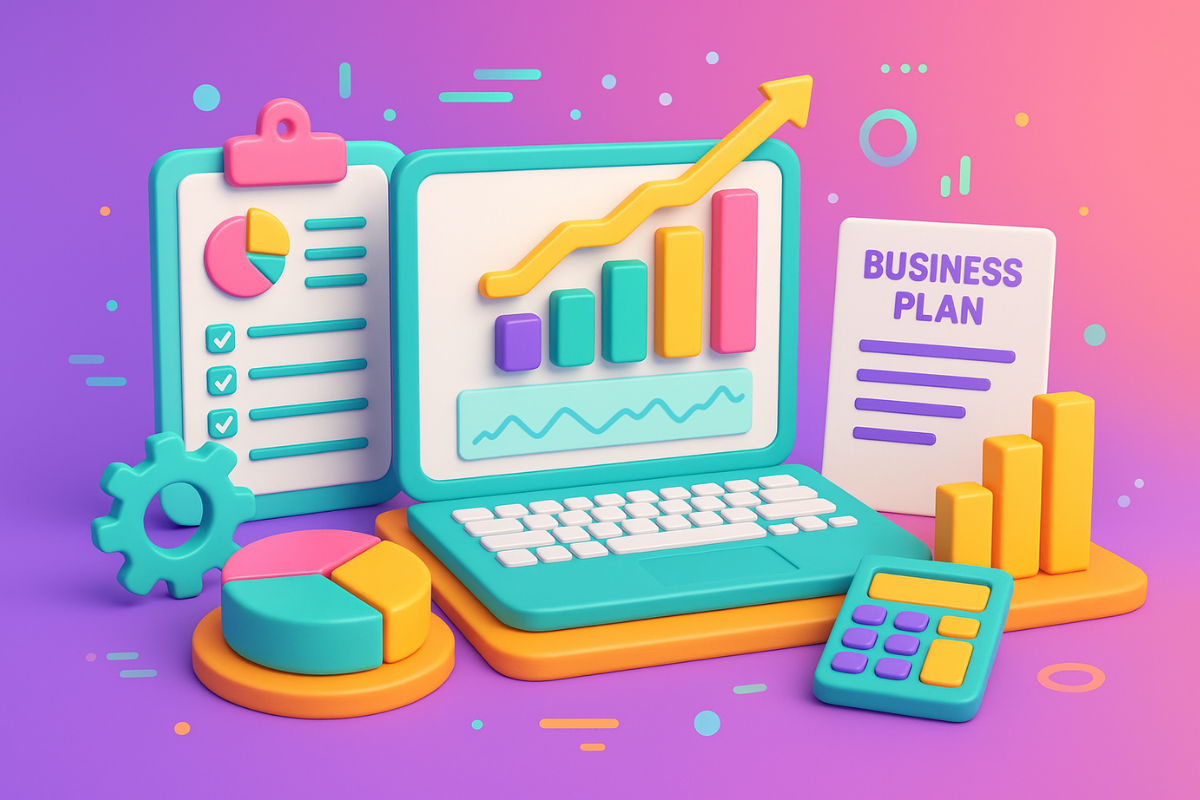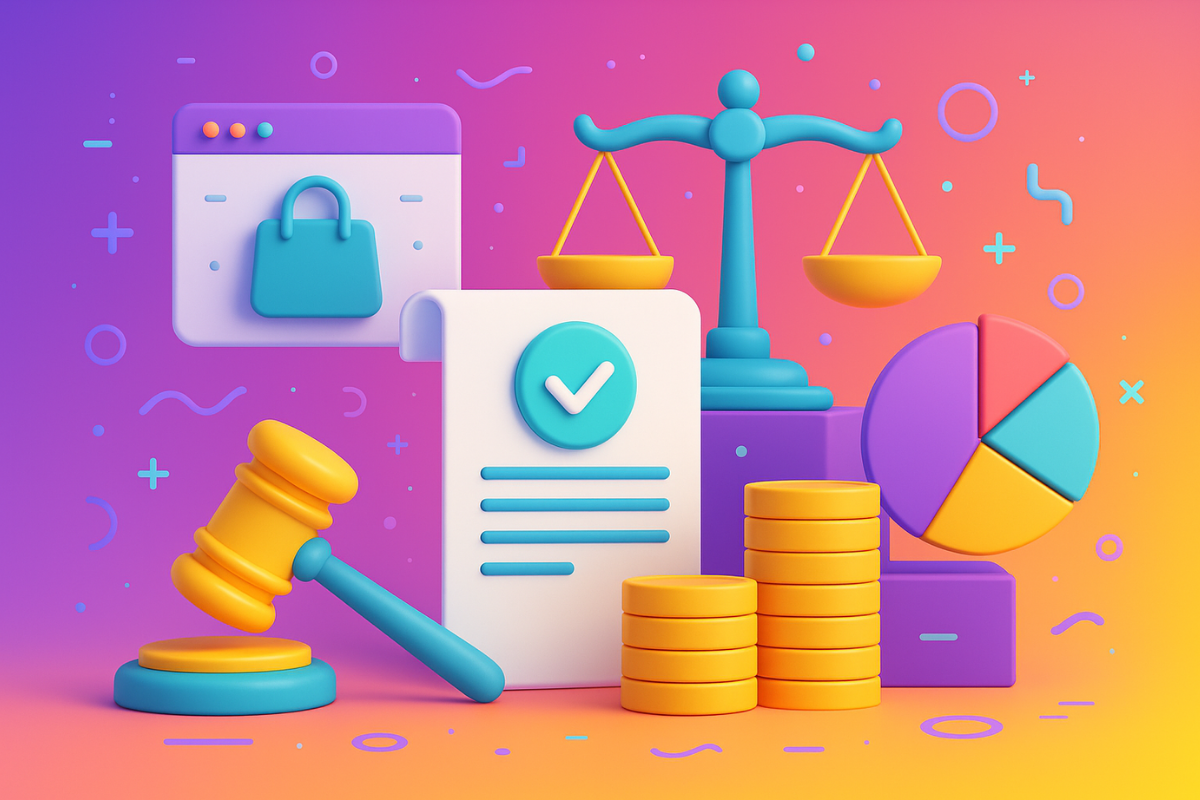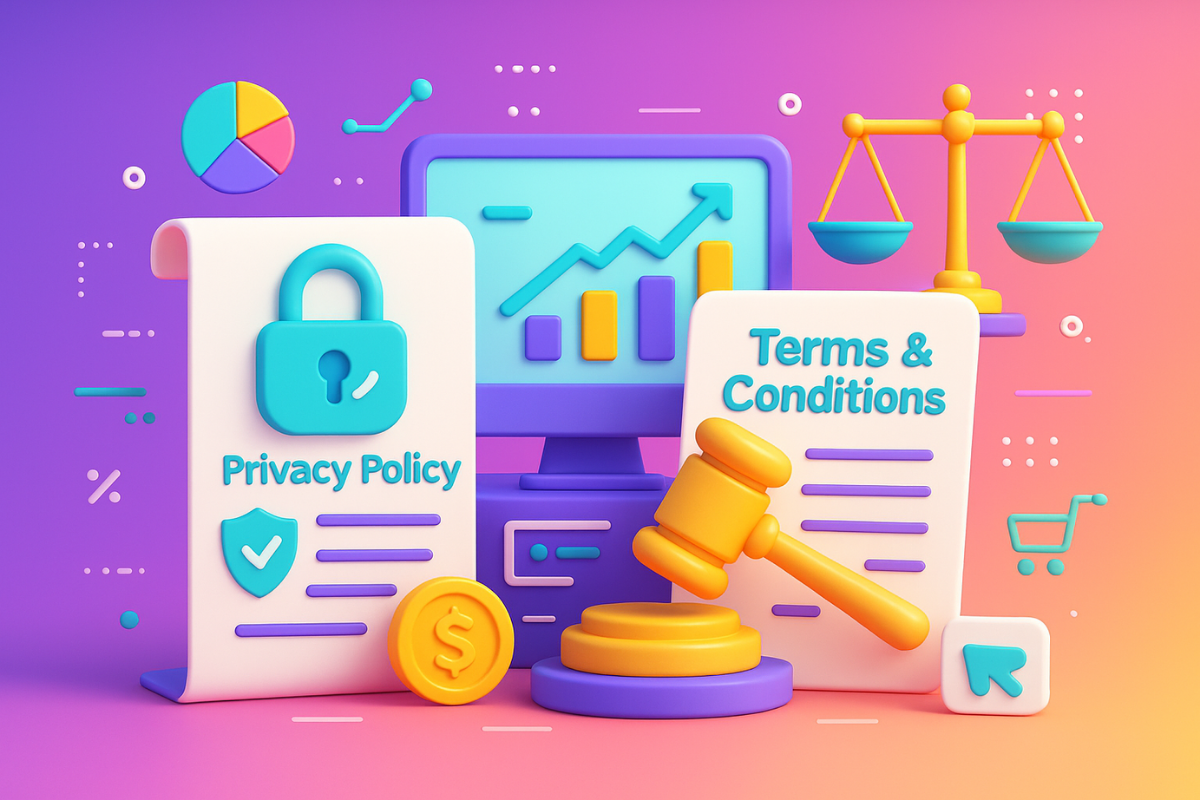Creating a business plan is not essential but it is a major asset and is essential not only to present your business to investors (for example) but also to follow the evolution and the achievement of your objectives.
A business plan consists of several elements that allow you to have a clearer idea of your entrepreneurial project as a whole. This will enable you to better deal with the challenges of entrepreneurship.
If you already have a business idea, here are the key parts to create your business plan:
Definition of the business objectives
Defining the business objectives is the first step in creating a business plan. It consists of determining the objectives and results you expect from your business: short, medium and long term.
- Short-term objectives can include creating a product/service, conquering new markets, improving performance, increasing market share, ...
- Medium-term objectives may include improving processes, developing new products/services, accessing external funding, ...
- Long-term objectives may include growth in profitability, expansion of activities, development of new markets, ...
Infinite Possibilities, One Platform
Build, manage, and scale your online store effortlessly with our cloud-based e-commerce solution.
Market study
A market study is essential to create a business plan. It is important to gather information about the competition and the business environment before launching your business.
Information to gather includes:
- market trends,
- target customers,
- competition,
- similar products/services,
- promotional strategies,
- macroeconomic factors
- and political conditions.
Once this information is gathered, it should be analyzed with a view to using it to develop an effective business strategy.
The product/service development plan
Well-developed products/services are the foundation of a successful business. A product/service development plan will define the products/services you want to market and their added value for the customer. It will also determine the price and features of your products/services.
Your development plan should also include informations on the quality and safety of the products/services as well as their compliance with standards and regulations.
Finally, the plan should also include information on production capacity, procurement and logistics.
Marketing Plan
Creating a business plan involves developing a marketing plan to promote and sell your products and services. It will be essential to achieve your business objectives.
Its function is to define the promotion and distribution strategy. It is essentially based on the market segmentation. It determines the positioning of the products/services and the communication strategy to adopt.
Finally, the marketing plan must include information on costs, and prices.
Financing Plan
The financing plan will identify sources of funding and associated costs. It should include information on investments, loans and grants.
The financing plan should also include strategies for managing cash flow and hedging risks. It should also present information on projected revenues and expenses.
Operations Plan
The operations plan is another key element to create a business plan. It will be used to define the procedures and systems required to achieve the objectives.
It will include employee duties and responsibilities, production processes and maintenance procedures.
The operations plan will also develop training and safety plans and define quality control systems.
Finally, it should also detail information about the equipment, tools and software required for your business.
Human Resource Management Plan
The function of the human resources management plan is to define the responsibilities and skills required to achieve the business objectives.
To do this, you will need to determine employee recruitment criteria and selection procedures. You will also need to develop training and skills development plans and define remuneration systems.
The plan should also include information on performance management and incentive policies.
Evaluation and Monitoring Forecasting
The final element to consider when creating a business plan is the forecasting of the evaluation and monitoring of the business activity.
It will determine the key performance indicators and monitoring methods. For this part, you will need to develop performance measures and targets. But also define methods to monitor financial results.
Finally, the evaluation and control section of your business plan will also serve to detail information on audit procedures and analysis tools.
Your Store, Our Expertise
Discover how our cloud-based e-commerce solution can change your business.
Conclusion
A business plan is used to provide a clear and detailed presentation of a business project to investors and stakeholders. It is therefore essential for raising funds, but also to find the right legal status for your business.
Another major role of the business plan is to structure and guide the development of the business and to assess the risk and viability of the project. It's an undeniable asset to create and develop your business.
This is done by providing a perspective and a global vision of the business activities in the short, medium and long term. But also to give the elements that will allow to measure the performance and to define strategies to reach the objectives.
Increase Your Sales Potential
Automate and grow your e-commerce business with ease.




